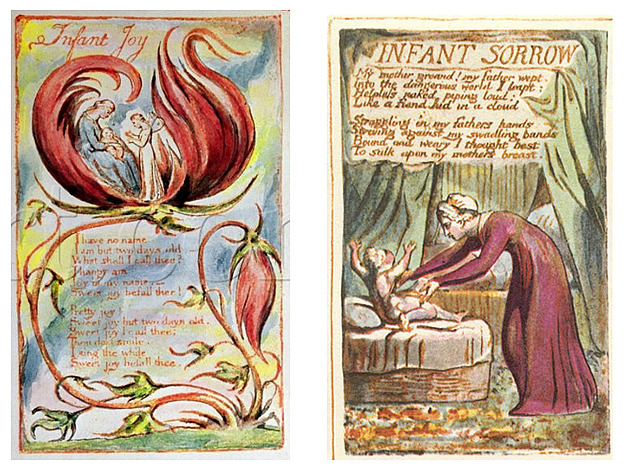

Instructors |
|
| Wk | Date | Class activity | Due | Links |
| I | 3/29 | Introduction |
Instructor info: |
|
| 3/31 | Holiday | |||
| II | 4/5 | William Blake, Songs of Innocence and Experience
|
quiz |
|
| 4/7 | William Wordsworth, selected poems
|
quiz |
||
| III | 4/12 | Henry David Thoreau, Walden or Life in the Woods
|
Read Walden 1-10, 26-47, 72-84, 84-90, 193-206 quiz |
Thoreau links |
| 4/14 | Student presentations:
|
Beethoven, "The Kreutzer Sonata"
|
Responses to presentations(1) | |
| IV | 4/19 | Student presentations:
|
Beethoven, "The Kreutzer Sonata" | Responses to presentations (2) |
| 4/21 | Leo Tolstoi, "The Kreutzer Sonata" | quiz | Tolstoi's defense of the story | |
| V | 4/26 | The Narrative Life of Frederick Douglass | quiz | Douglass notes |
| 4/28 | Honore Balzac, Colonel Chabert | quiz | Balzac links | |
| VI | 5/3 | Honore Balzac, Colonel Chabert Franz Kafka, The Metamorphosis and other stories |
Read: "The Metamorphosis" | Kafka links |
| 5/5 | Franz Kafka, The Metamorphosis and other stories | quiz Read: "The Country Doctor" and "In the Penal Colony" |
||
| VII | 5/10 |
Student presentations
|
Schmoop guide to To the Lighthouse (indispensable!) | |
| 5/12 | Student presentations |
Responses to Presentations (4) | ||
| VIII | 5/17 | Virgina Woolf, To the Lighthouse | quiz | |
| 5/19 | Dover Anthology of World War I poets | read these authors:
|
Links and lecture notes | |
| IX | 5/24 | Mary Oliver [outdoor day--meet here at the Parking lot for the Leaning Pine Arboretum at 2:10]. Wear walking shoes and dress for the weather. |
Print the poems for today's assignment and bring them to class. | |
| 5/26 | Gary Snyder | Print the poems for today's assignment and bring them to class. |
|
|
| X | 5/31 |
Student projects |
Print the poems for today's assignment and bring them to class. |
Responses to Presentations (5) |
6/2 |
Student projects |
Responses to May 31 presentations due | Responses to Presentations (6)
|
|
| XI | 6/6 Monday 8AM | Responses to June 2 presentations due | ||
| 6/7 Tuesday 8AM | Papers from groups 21-25 due | |||
| 6/9 Thursday at 1:10 p.m. | Deadline for submitting Take-home Final Exam as word.doc to both instructors | Papers from groups 25-28 due |
Books
Workload and Grading
Rules
Reading and Writing
General Education course objectives
|